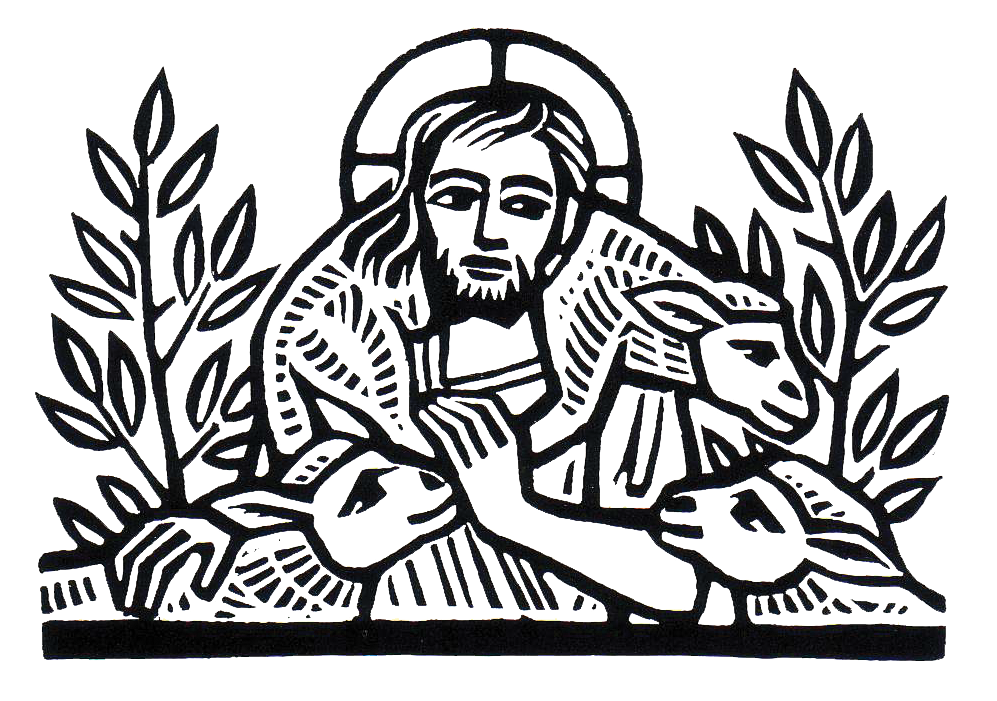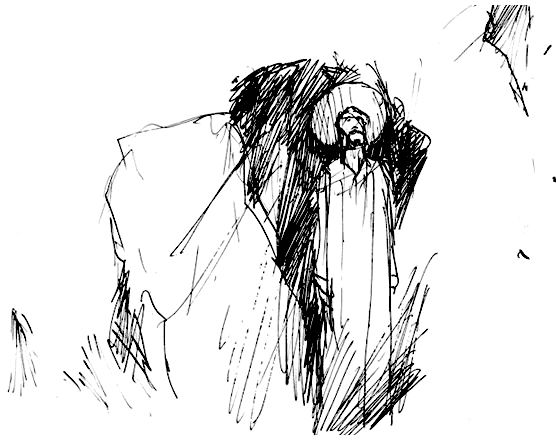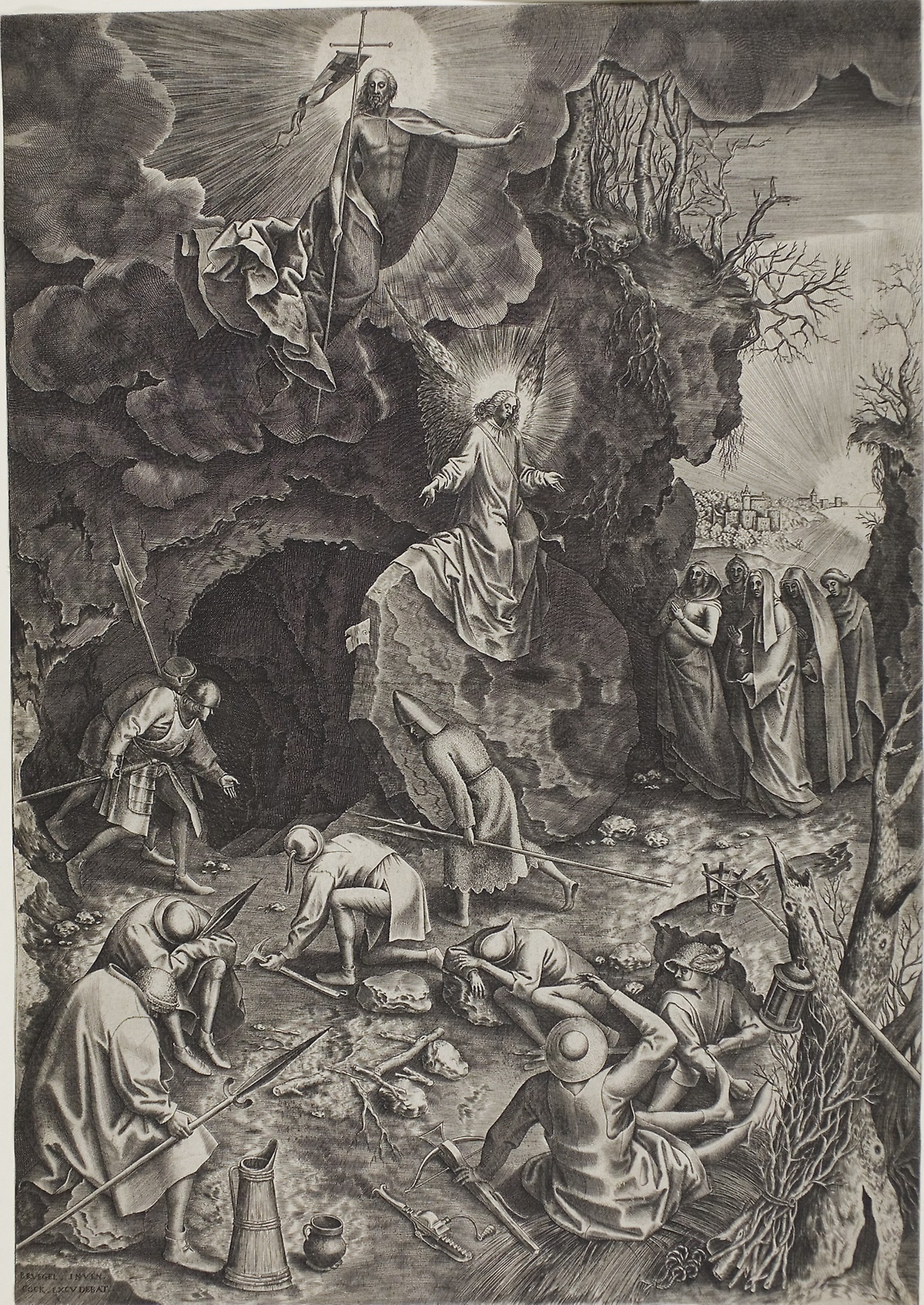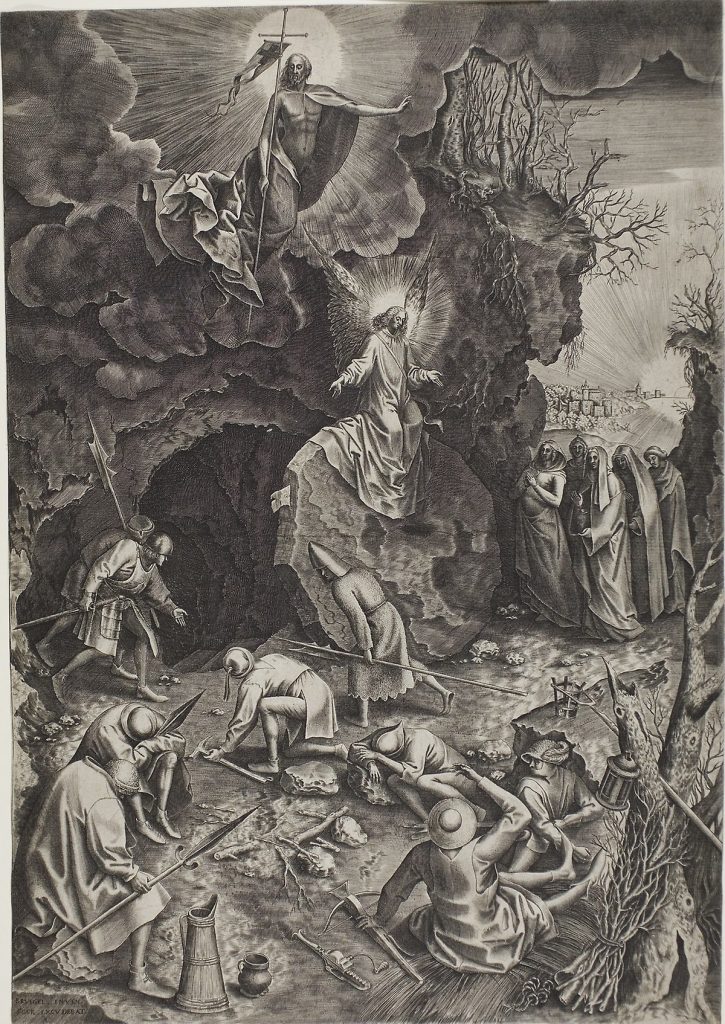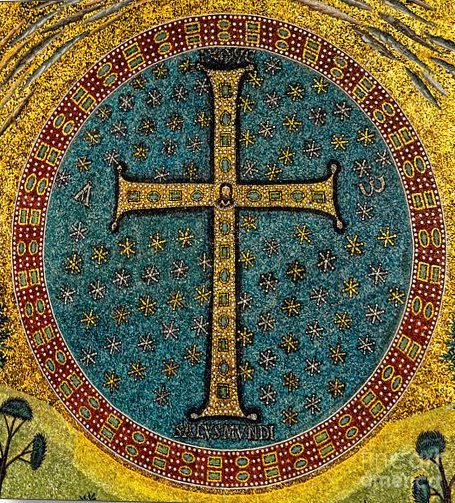I am the good shepherd: the good shepherd giveth his life for the sheep (St. John 10:11).
To gain context for understanding Christ’s claim to be the true leader of the citizens of the new heaven and new earth, we should hold in our minds that just before this sermon Jesus has miraculously given sight to a blind man on the Sabbath day. The false teachers, the hired men who sought to use religion to grant them power and security, assumed the blind man’s vision had originally been darkened as a special punishment for sin: either in the blind man’s own history or as some kind of inherited punishment for his parents’ misdoings. When they looked at this blind man, these false-religious authorities did not see a divine image bearing human being tragically suffering through the pains and afflictions of living in fallen, broken world; no, they saw a villain being justly punished, and of course, one doesn’t have to feel compassion for a villain, one doesn’t have to love someone getting what they deserve. What’s worse, Jesus’ disciples thought the same thing.
We constantly hear this terrible logic in the flippant condemnation of those who suffer around us. Words like, “They deserved it,” or “ What goes around comes around,” or “That’s karma for ya” hollowly ring through conversations of suffering. I talk to a lot of people, and what I have found is that Americans are much more like misguided Hindus than doctrinal Christians when it comes to grace and justice, fairness and forgiveness. This pop-hinduism comes through in those invocations of karma or when people say things like, “Do good things and good things will happen to you, do bad things and bad things will happen to you.” It is a comforting mantra, until of course, any kind of suffering comes our way. Jesus responds to this misguided perspective, not through intense argumentation; rather, He grabs some dirt and remakes a son of Adam’s eyes before a shocked crowd. He who created the world, recreates the eyes of this sightless man seemingly marked for special suffering; Christ, working on the Sabbath day of His own divine creative rest, carries the love of the first day of new creation into the streets of human hate, and in turn, He ascends above the selfish arguments of dying men. On display here are Christ’s unique qualifications for declaring Himself the Good Shepherd, the perfect leader of humanity’s 8th day people: dead men rise, blind men see, evil men are loved. Christ is not just some idealistic man to be dismissed; He isn’t a social movement or a juvenile philosophy picked up in some dorm room; no, Christ is the God/Man doing on the 7th day what humanity failed to do on our first 8th day, what Man still fails to do. Christ is leading the sons of men to their destiny, no matter how hard we buck and fight against Him because a direct corollary of knowing we desperately need a good shepherd is the painful realization that we are far more like sheep than gods.
Which explains why Christ must not be just the good shepherd but something else as well, as He says, “Truly, truly, I say to you, I am the door of the sheep. All who came before me are thieves and robbers, but the sheep did not listen to them. I am the door. If anyone enters by me, he will be saved and will go in and out and find pasture.” (St. John 10:7-9). We need this part of Christ’s sermon to make sure we don’t confuse Jesus with all other men who have stepped forward to claim our souls for their world saving projects: the thieves and robbers who are wholly different from the God who became Man so we could be led through the valley of the shadow of death and into the green pastures—-feasting forever beside the waters of comfort. Jesus is revealing to His creatures that He is more than a Man: He is the sacred space in which heaven and earth come together, the place where, as Jesus says, “…heaven will open, and the angels of God will be ascending and descending…” (St. John 1:51). This kind of a leader is wholly different from all others we will experience in this broken world; here is a Master who will use every part of Himself to drag our fallen creation into the new world only He can recreate. The thieves and robbers of all ages—in their own way—hold out to us the hope for some new world just around the corner, all we must do is die for them in countless ways small and great. In contrast, Christ is that actual, new world in the flesh, and He will die for us to ensure it will come to pass. There lies the difference between our God/King and all the other rulers of men: thieves and robbers will gladly feed us to the wolves if it serves their schemes and plans, Christ lays His life down so that no wolf can ever truly hurt us. Only a shepherd who has died for His sheep is a shepherd worth dying for; this is what it means to be the Good Shepherd; this is what it costs.
But why? My God, why would Christ do this for us? What have we done to deserve the beautiful and brave shepherd dying for His ignorant and selfish sheep? The only answer we have is love. As Christ says, “Therefore doth my Father love me, because I lay down my life…” To save the creation born of divine love, Christ will die for the creation which hates Him. It isn’t fair, and like scared sheep watching their shepherd fight off a hungry bear for them, we should be confused and terrified by this incomprehensible act of God, for indeed, we have never experienced a love like this in our lives, not yet anyway. This love is the perfect love which exists in the Trinity, the love which will be the beating pulse of the new creation. What we do know of this love is a shadow cast from the inevitable glory to come: the first smile of a newborn, the last embrace of a husband and wife, and all the other graces which would be impossible in a universe created by anyone other than the God who addresses us today. The God who is love.
This God, this shepherd of shepherds is calling us, and I pray we hear His voice. Christ’s sermon today is not a flattering portrayal of humanity; in fact, quite the opposite, but Christ isn’t here to sell us something or to use us to move up some political ladder; no, Christ is the ladder of heaven: Christ is the way, the truth, and the life, and He has come to lead us through death into everlasting life. The reality of the human condition, the brutal shortness of our fallen lives, demands that we look up from the grass and seek deliverance from the wolves who lurk in the darkness, deliverance from the false shepherds who for money and power would gladly lead us to destruction. If we are Christ’s, then we follow the Good Shepherd who has built the door of salvation with His own crucified body, the Good Shepherd who feeds unworthy sheep with His own flesh and blood until we die and rise again, not as ignorant sheep, but as Sons and Daughters of God, men and women united in the great human mission to rule the universe in truth and love, equity and grace.
Let us then listen to the Good Shepherd’s voice, let us be saved and healed in His care as we journey through this world of darkness, and let us have the faith and courage to be led through the valley of death and into everlasting light.

